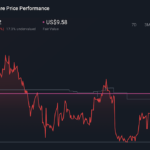
(Bloomberg) —
The European Union’s review of Google’s plan to buy Fitbit Inc. won’t involve privacy regulators, the bloc’s antitrust chief insisted, days after data watchdogs warned about how tech giants could use M&A to access citizens’ private information.
A panel of EU data regulators raised the alarm last week, saying that the $2.1 billion takeover of fitness tracker Fitbit could “entail a high risk to privacy and data protection” in an unusual statement.
But the group, known as the European Data Protection Board, can’t have a formal role weighing the merger, Competition Commissioner Margrethe Vestager said in an interview with Bloomberg.
“We cannot invite other bodies to participate,” she said. “We are very much aware that in cases there can be a privacy issue. We are just very careful not to see a competition issue where there is a privacy issue because, if that is the case, it’s not for us.”
Google’s plan to buy Fitbit is running into a wall of antitrust and privacy worries in the U.S., Europe and Australia, where competition officials are increasingly wary of how internet giants can exert control over data to cement their dominance. The deal adds wearable devices to the internet giant’s hardware business. It also advances the ambitions of Google parent Alphabet Inc. to expand in the health-care sector by adding data from Fitbit’s more than 28 million users.
The data regulators said last week that companies should take action to mitigate any risks before seeking formal approval from the European Commission, the bloc’s merger authority. They also said they were “ready to contribute” to a merger review.
The EU hasn’t started any formal examination of the deal and must wait for Google to file for approval. The commission is responsible for checking whether a transaction that falls under its remit harms competition in the bloc.
Vestager said she would “always welcome people contributing to the case” but cooperation with privacy regulators “would not discuss specific cases because then we would invite people in who may not be privy to” confidential details of a review.
EU antitrust regulators may eventually have to deal with how “privacy issues can be used in an anti-competitive manner,” she said. “We will have to stay vigilant to see if that is actually the case.”
Google referred to a statement it made last week, saying it plans “to work constructively with regulators to answer their questions” about the deal and won’t sell personal information to anyone.
“Fitbit health and wellness data will not be used for Google ads. And we will give Fitbit users the choice to review, move, or delete their data,” the company said.
Extensive Scrutiny
Google’s businesses have received extensive scrutiny already in Europe, with three EU antitrust probes resulting in more than $9 billion in fines.
Vestager said the penalties, of between 4-6% of Google’s revenue “could have been higher,” up to a limit of 10%. Officials found it more urgent to look at companies’ actions to repair damage caused by anti-competitive behavior, she said.
Smaller shopping search firms that say they have been hurt by Google’s action in the product search market have criticized Google’s changes as inadequate and have called on Vestager to declare the company as non-compliant with the EU’s order — which could involve new fines.
The EU commissioner is keenly aware of the “very tricky” issue, saying the changes have made Google’s rivals more visible and more merchants have been getting traffic. “But you do not see that rivals themselves are getting traffic.”
“It’s difficult to say what is cause and effect here,” she said, pointing to that and Google’s recent changes to Android apps as cases to “see and learn from,” warning that companies that breach antitrust rules must know that fines will be accompanied by orders to change behavior.
“If we find illegal behavior, it’s not just stop what you’re doing. It is definitively also, you will have a responsibility to do positive actions to make competition come back,” she said.
(Updates with detail on procedure in 7th paragraph.)
To contact the reporters on this story: Aoife White in Brussels at [email protected];Hamza Ali in Brussels at [email protected]
To contact the editors responsible for this story: Anthony Aarons at [email protected], Peter Chapman, Molly Schuetz
<p class="canvas-atom canvas-text Mb(1.0em) Mb(0)–sm Mt(0.8em)–sm" type="text" content="For more articles like this, please visit us at bloomberg.com” data-reactid=”40″>For more articles like this, please visit us at bloomberg.com
<p class="canvas-atom canvas-text Mb(1.0em) Mb(0)–sm Mt(0.8em)–sm" type="text" content="Subscribe now to stay ahead with the most trusted business news source.” data-reactid=”41″>Subscribe now to stay ahead with the most trusted business news source.
©2020 Bloomberg L.P.








